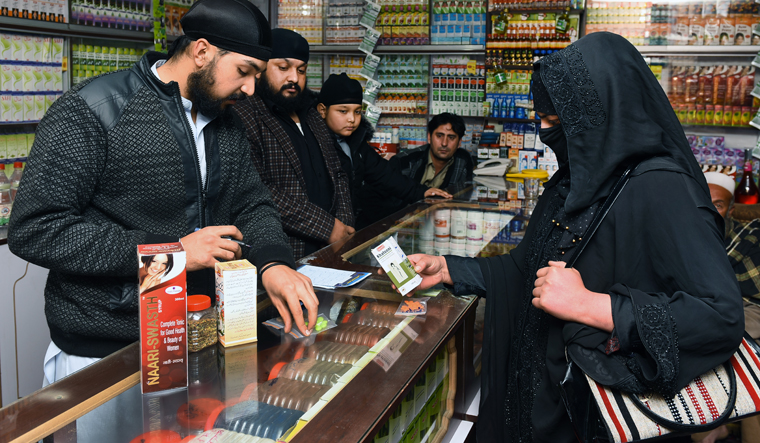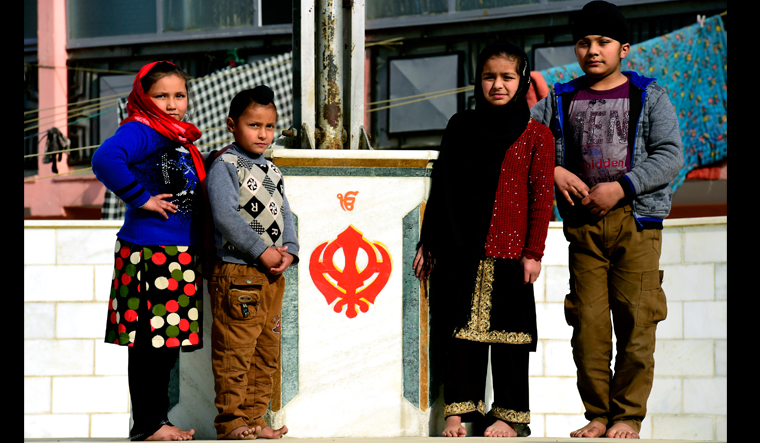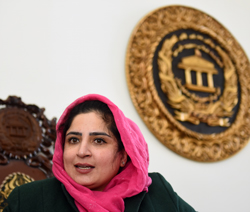The Afghanistan government had reserved a seat in the lower house for a member of the miniscule minority Hindu/Sikh community to contest elections. This was the country's valiant effort at maintaining its multicultural identity. Awtar Singh Khalsa, an Afghan Sikh, and a former Senator (nominated to the Upper House) was likely to win unopposed from this seat. But with his death in the targeted blast in Jalalabad a few days ago, will this seat remain vacant? The blast had killed 20 people, including 10 from the Hindu/Sikh minority.
The preliminary procedures of the election process have already begun. The elections are scheduled for October, but the last date for filing nominations was June 14. For a minority seat like this one, the process in Afghanistan is that the candidate has to get the support of at least a thousand people. The candidate has to furnish their consent before the election commission. Awtar Singh had cleared this process. It is now being reported that his son, Narender, is keen to contest in his father's lieu. But the election commission will have to agree to allow him to furnish the letters of support, past the deadline.
Even if Narender, or any other candidate, does clear the requirements of the election commission, the sad truth is that there is hardly anyone left to represent. The Sikh community, while always small in terms of numbers in Afghanistan, was an important aspect of the country's multicultural identity.
Sikhism came to Afghanistan early, with Guru Nanak himself having visited the Afghan lands twice. Bhai Gonda, a disciple of the seventh guru, Har Rai, was sent to Kabul to preach the faith there, later. There are a number of gurudwaras across Kabul, Kandahar and Nangarhar, of historical importance, and part of the Sikh pilgrim circuit.
The Sikh/Hindu numbers, however, have depleted so rapidly that during a visit to Kabul this January, this correspondent met only a handful of Sikh families and none at all from the Hindu community. Because even the few who are left behind go over to India for months at a stretch, specially during winter. According to Anarkali Kaur Honaryar, 30, a senator in the Upper House, there were just 1,300 member of the community left in all of Afghanistan.
After the latest attack, perhaps the numbers will go down even further, as more and more seek safer lands. Harender Singh, who teaches Sikh children at the Gurudwara Har Rai in Shor Bazar in the old quarters of Kabul, had said that the threat was not just from the Taliban and the ISIS, but also from the locals. Sikh and Hindu cremations cause problems with the Muslim majority in a city pressed for space, where encroachments to settle the internally displaced mean that the smells and sights of a funeral of the minority community offends the sensibilities of the majority. So much so that Honaryar said they had asked for an electric crematorium to be imported. Till January that was not installed.
 There were just 1,300 member of the Sikh community left in all of Afghanistan | Sanjoy Ghosh
There were just 1,300 member of the Sikh community left in all of Afghanistan | Sanjoy Ghosh
While the more affluent Afghan Sikh disapora has moved to Europe, Canada and Australia, the bulk looks towards India, the spiritual homeland of the faith. While India grants long-stay visas to them, there are problems accessing several civic amenities. A delegation of the Afghan Sikhs met External Affairs Minister Sushma Swaraj some days after the Jalalabad attack, where she assured them that they would be looked after in India. She is also keen that a bill the NDA government moved, which seeks to give citizenship to six persecuted minorities (Hindus, Sikhs, Jains, Buddhists , Parsis and Christians) from Pakistan, Afghanistan and Bangladesh countries, who came to India before 2014 get legislated in this session of the Parliament. The bill has been cleared by the Lok Sabha. However, it may have to face several hurdles as people, like in the northeast, are not too happy to give up their land and space to accommodate refugees.
Granting citizenship to these persecuted Sikhs is one matter. However, with their exodus from Afghanistan, a unique and rich culture will disappear. A culture where the people revered the Granth Sabhib, but spoke Pashto.



